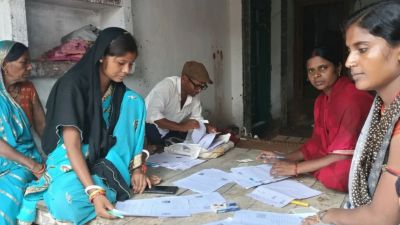Stay updated with the latest - Click here to follow us on Instagram
Reciprocity not just agreed upon by two nations, but part of global norm: Abdul Basit
Basit’s comments practically meant that the NIA would not be accorded the same access into Pakistan that its JIT enjoyed in India.
 Abdul Basit
Abdul Basit
A day after Pakistan envoy Abdul Basit’s stated that “cooperation”, and not “reciprocity”, was key to the probe into Pathankot attack, senior government officials said “reciprocity” was not just agreed upon by the two countries ahead of the JIT visit, but is also an international norm enshrined in the UN resolution on cooperation between countries on terror issues.
Basit’s comments practically meant that the NIA would not be accorded the same access into Pakistan that its JIT enjoyed in India. According to senior officials, the statement came as a surprise because the two countries had agreed upon “reciprocity” before the JIT arrived.
WATCH| Peace Process With India ‘Suspended’, Says Pakistan Envoy Abdul Basit: An Analysis
[related-post]
Home Ministry sources added that in matters of cooperation on terror probes, “sovereign assurance of reciprocity is an accepted principle internationally”. A senior official said this was also enshrined in the UN resolution 1373 that deals with cooperation on terror.
“Both India and Pakistan are signatories to the resolution. So even though no legal assistance treaty exists between the two countries, they are bound to engage on such matters on a reciprocal basis,” the official said.
He added, “Also, in this case, Pakistan was the ‘requesting authority’, requesting India to let it investigate the attack in India. It goes without saying that the ‘requested authority’ would want and would have to be provided the same assistance.”
Meanwhile, Minister of State for Home Affairs Kiren Rijiju said Friday that statements like the one made by Basit would not help in improving relations between the two countries.
“We reject the statement of the Pakistan High Commissioner. What he has said is wrong. It will not help in improving relations between the two countries,” he said.
After Basit’s comments, the Ministry of External Affairs had said on Thursday, “We have seen comments by the Pakistani High Commissioner on the visit of the JIT team to investigate the terrorist attack on the Pathankot airbase that have reference to reciprocity.
The ministry would like to clarify that on March 26, before the visit of the JIT, the Indian High Commission formally conveyed to the Pakistani Foreign Ministry that the terms of reference “are broadly agreed to with the proviso that these would be on the basis of reciprocity and followed in accordance with extant legal provisions. Subsequently, the JIT visited from March 27 to April 1.”






